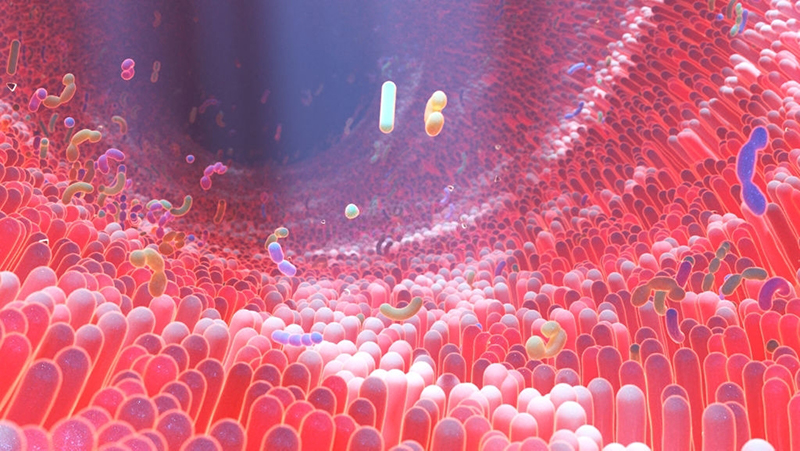Probiotics and digestive enzymes work together, but they are very different. Digestive enzymes aid digestion and improve chemical processes in the gastrointestinal tract. Probiotics are live bacteria that help the gut’s environment maintain balanced so it can stay healthy and function properly. probioticseverything.comprobiotics vs digestive enzymes
Probiotics and digestive enzymes are both essential for a healthy digestive tract. They both work to promote digestive function and avoid gut imbalance, despite their very diverse functions. Both of these advantages are critical for excellent gut health, which has a significant impact on overall health. probioticseverything.comprobiotics vs digestive enzymes
In truth, our beneficial gut bacteria help with digestion, nutrient absorption, immunological function, and neurotransmitter generation, among other things.
The link between probiotics and digestive enzymes, like gut health in general, is complicated.
Some people may ask whether one is better than the other, or if taking both is safe and effective. In this post, we’ll take a closer look at digestive enzymes, including how they operate, how they compare to probiotics, and how the two work together to support healthy digestion.
We’ll go through the advantages, what to think about before taking a supplement, and the best ways to incorporate digestive enzymes and probiotics into your diet. probioticseverything.comprobiotics vs digestive enzymes
Are Digestive Enzymes and Probiotics the Same Thing?
Digestive enzymes and probiotics are quite distinct and have different effects on gut health. The two actually work well together: Digestive enzymes aid digestion, while probiotics help to maintain a healthy digestive environment. It’s bad for your gut health if you don’t get enough of either. probioticseverything.comprobiotics vs digestive enzymes
Probiotics are living microorganisms, and the gut contains billions of them. Probiotics, often known as “good gut bacteria,” help with digestion and absorption, as well as the immune system and neurotransmitter production, to name a few. probioticseverything.comprobiotics vs digestive enzymes
When you eat probiotic foods like yogurt, sauerkraut, or kimchi, the beneficial bacteria primarily operate to prevent bad bacteria from overgrowing. Probiotics also help to maintain a robust gut barrier, which keeps pathogens out of the bloodstream. Another fascinating function of probiotics is their role in the production of certain vitamins. probioticseverything.comprobiotics vs digestive enzymes
Finally, probiotics may aid in the treatment of antibiotic-induced diarrhea, irritable bowel syndrome (IBS), and other digestive problems. Digestive health is likely to deteriorate when probiotics in the gut are depleted as a result of certain drugs or illnesses. An imbalance in gut bacteria can lead to leaky gut, a compromised immune system, and even mood swings over time.
What Are Digestive Enzymes and How Do They Work?
Digestive enzymes, unlike probiotics, are non-living proteins. They’re made mostly in the pancreas, but they’re also found in the mouth, stomach, and small intestine. Their principal function is to aid in the breakdown of various foods so that the body may extract and absorb the necessary nutrients. Each kind is distinct in terms of its involvement in digestion and the macronutrients it breaks down. probioticseverything.comprobiotics vs digestive enzymes
The following are some of the most prevalent digestive enzymes:
Amylase is a carbohydrate-targeting enzyme.
Protease is a protein-digesting enzyme that breaks down proteins into amino acids.
Lipase is a digestive enzyme that aids in the breakdown and digestion of fat.
In fact, several diseases lead the body to produce insufficient digestive enzymes.
Lactose intolerance, for example, is caused by a deficiency of lactase, an enzyme that breaks down lactose, a milk protein. Because lactose cannot be broken down, people with this illness experience severe discomfort when they consume anything produced with milk.
Reduced digestive enzyme synthesis in the body is linked to a variety of health disorders and dietary intolerances, including:
Lactose intolerance
Bean intolerance
Pancreatitis
Pancreatic cancer
Blockage of the pancreatic duct
Diabetes
Celiac disease
Cystic fibrosis
Digestive enzymes may also have an impact on illnesses that aren’t directly related to the gut, according to researchers. When youngsters with autism spectrum disorder took a digestive enzyme supplement for three months, they saw considerable improvements, according to a recent study. probioticseverything.comprobiotics vs digestive enzymes
Although digestive enzymes appear to help those who have a deficiency, it’s unclear whether they help others who don’t have a deficiency. The research is limited, and it has thus far focused on prescription enzymes and enzymes used in conjunction with probiotics.
What Functions Do Digestive Enzymes Have in the Body?
Digestive enzymes are required for nutrition absorption. Macronutrients (carbs, protein, and fat) aren’t properly broken down before reaching the small intestine for absorption if they don’t have them.
Malabsorption happens as a result, and nutrients are squandered. Food that hasn’t been fully digested attracts water into our intestines, causing gas, bloating, constipation, and diarrhea. Heartburn and indigestion are common symptoms of enzyme insufficiency.
Vitamin and mineral shortage can result from malabsorption induced by an enzyme deficit. Fat cannot be broken down if your body does not produce enough lipase. Your body will therefore be unable to absorb fat-soluble vitamins A, D, E, and K. Similarly, electrolytes and water-soluble vitamins will be lost if you have frequent diarrhea due to poor digestion.
Some digestive disorders can be treated with a basic over-the-counter (OTC) digestive enzyme, despite the fact that some severe conditions require prescription enzyme replacement medication. probioticseverything.com
Lactase, for example, can help those with lactose intolerance digest their food better. Lactase production is insufficient in people with this disease. Lactose in dairy products is broken down by the body with the help of a supplement.
As a result, lactose intolerant individuals can safely increase their dairy consumption. Similarly, for folks who can’t stomach beans, taking an alpha-galactosidase supplement can help with digestion.

